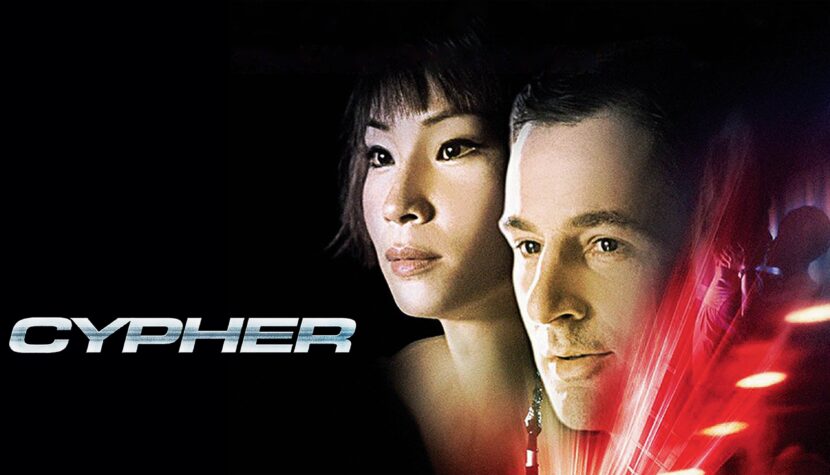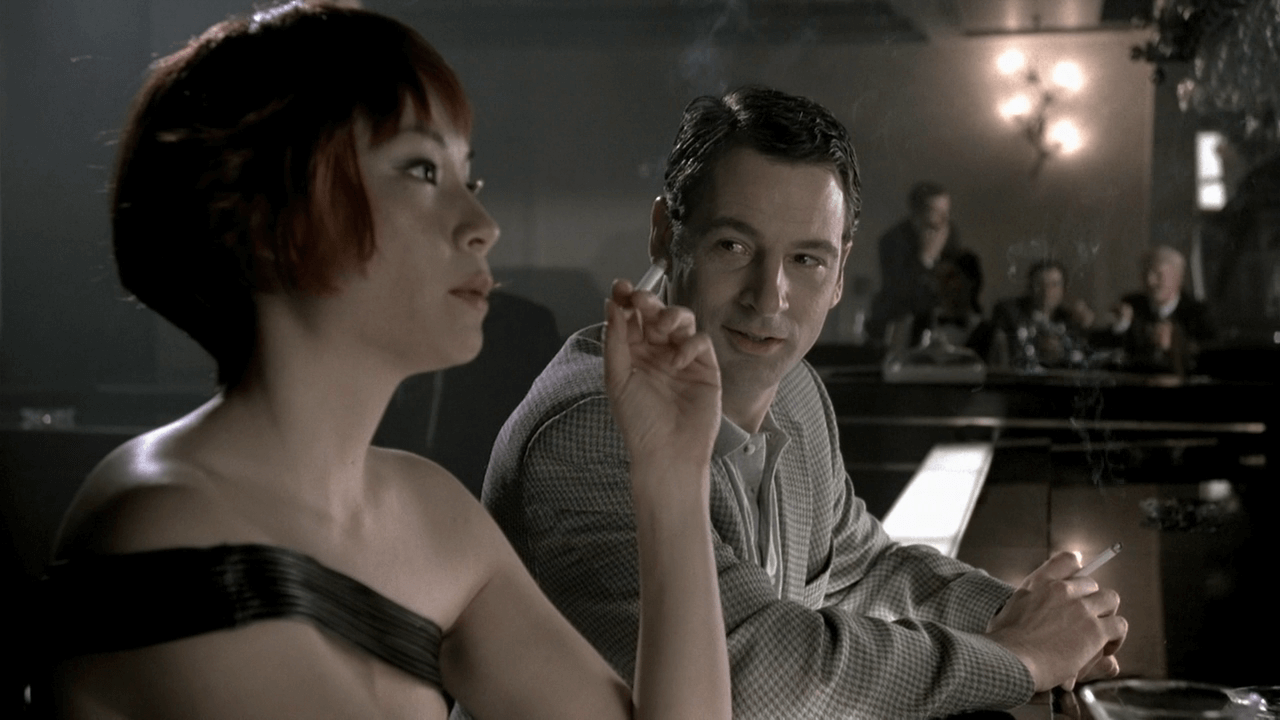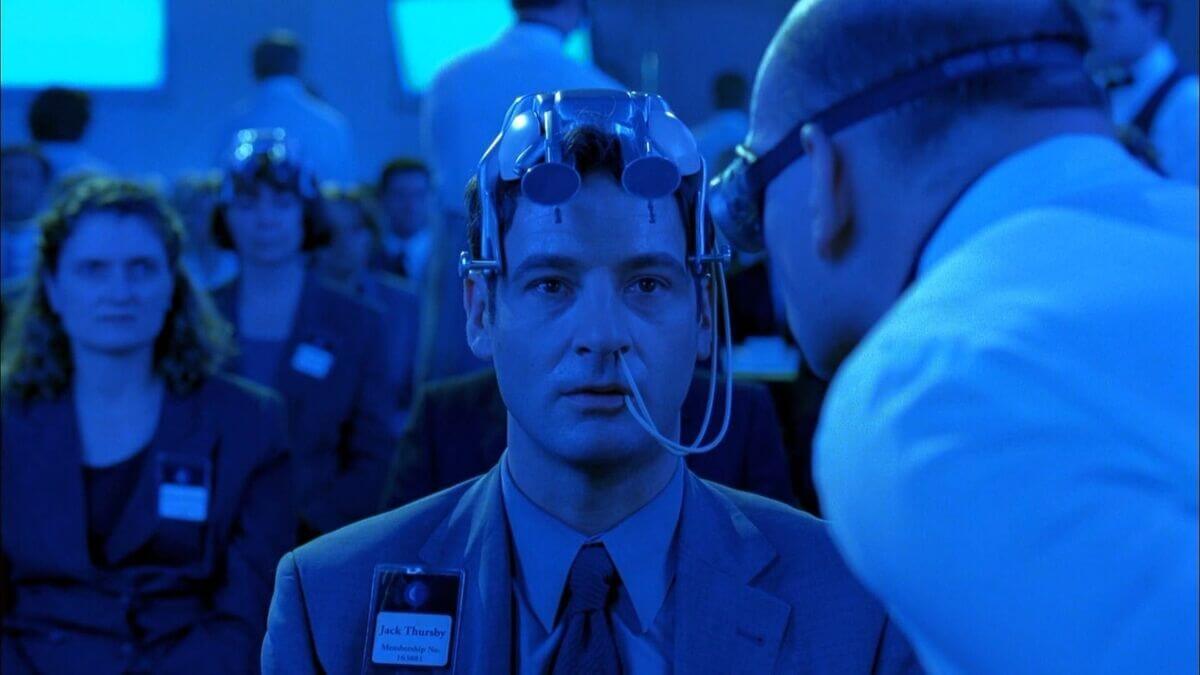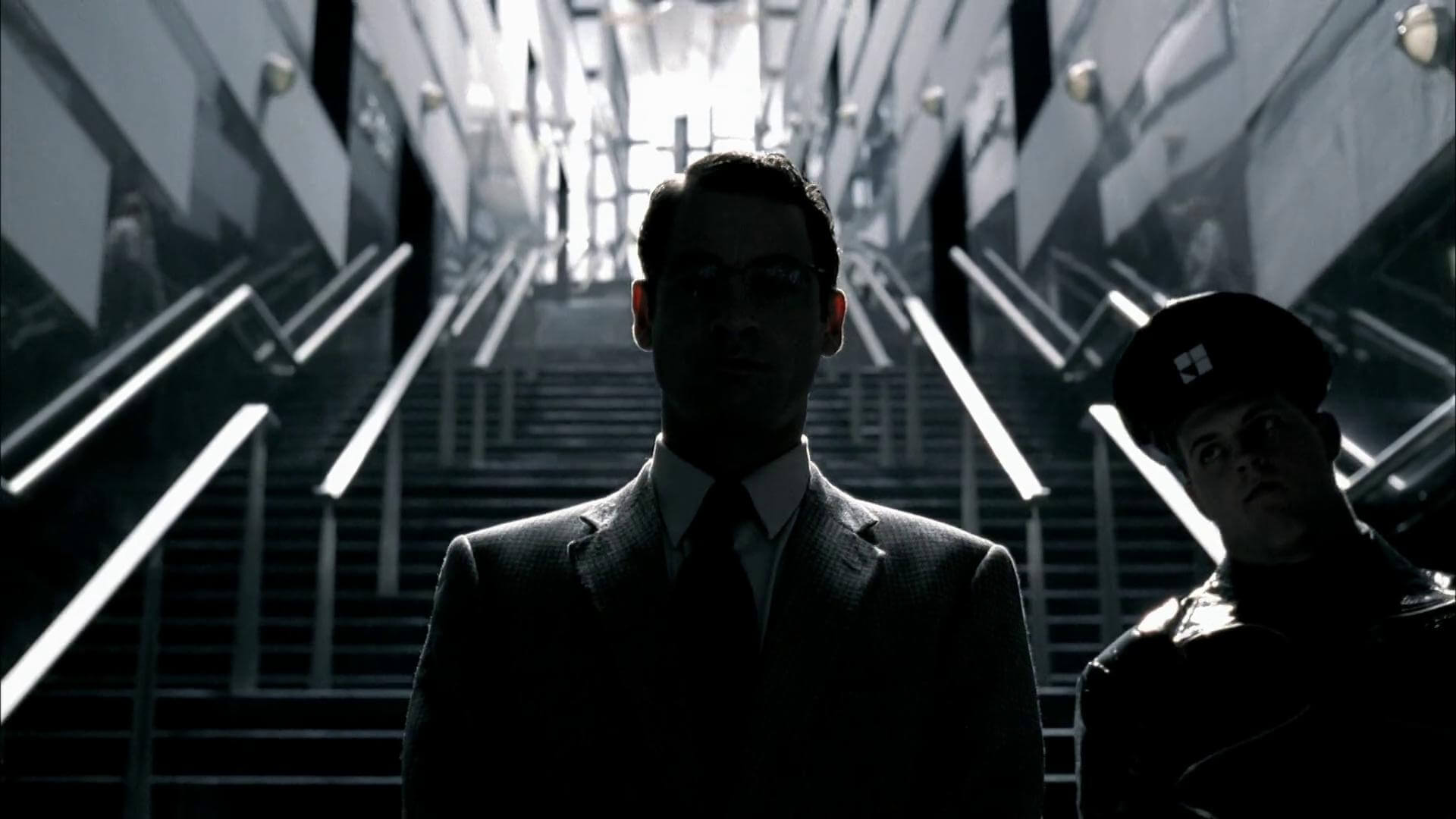CYPHER. Not cyberpunk canon but…

…or completely shed their humanity in favor of existing in cyberspace. One draws boundaries, the other overcomes them like successive stages on the path to a higher being. In the 2002 science-fiction thriller Cypher, Canadian director Vincenzo Natali eschews contemplations about the possibility of transforming a human into a disembodied consciousness, as the necessary technology for such a transformation seems (still) non-existent.
A plot
The characters can at best change their own or others’ identities to the point that even they are unaware of it. In this aspect, Cypher is closer to Philip K. Dick’s concept in We Can Remember It for You Wholesale than to Gibson’s Neuromancer, although the questions posed are similar—how do I know who I am? To what extent do my desires suggest to me that the world in which I live is artificial, or perhaps, am I the one who is not real?
For Morgan Sullivan (played by Jeremy Northam), the opportunity to become an industrial spy offers a chance to escape the routine of daily life, his cold wife, and the monotony of his “perfect” home. However, working for the Digicorp corporation leaves him disillusioned—he finds himself flying from city to city, conference to conference, recording uninteresting speaker presentations, and trying to impress the mysterious Rita (as cold as ice, played by Lucy Liu), who conveniently is always where he is. It is through her that he manages to deceive his employers, who believe they have brainwashed him, transforming Morgan Sullivan into Jack Thursby. However, even as Thursby, his life is just as mundane—he has a “perfect” wife, an immaculate home, and a tedious job. Perhaps such a life was destined for him, regardless of his name or actions?

Natali had previously directed the renowned Cube, in which a group of random people are trapped in what resembles a futuristic prison. The interconnected rooms are filled with elaborate traps, and under pressure, one of the characters starts to exhibit increasingly psychopathic behavior. Cypher, not only due to its genre affiliation, shares many similarities with Natali’s debut, although this isn’t necessarily an advantage. Here too, the leading character becomes trapped, undergoes a transformation—though voluntarily—and behind all the mysteries lies a powerful and enigmatic force. The director seems to convey that control is illusory, that we are merely pawns in someone else’s game, and that there is no escape from… ourselves? This conclusion may be quite overwhelming, but it doesn’t resonate as effectively in Natali’s second film.
Cypher = Cube?
The world of Cypher is cold, almost colorless, and stripped of emotions. The future it presents doesn’t differ much from the present, except for such gimmicks as the identity-changing machine or the underground super-database. However, the distinctiveness is palpable in the very game played by the rivaling Digicorp and Sunway Systems corporations. What’s at stake in their rivalry is unknown. We also have no knowledge about these corporations except for the fact of their existence. Both want to deceive each other, and even the revelation of their shared goal, as it turns out, seems pretextual, if not meaningless. Their presence serves merely as a backdrop to the journey undertaken by the main character. Even when he believes he’s just a puppet, he has more to say than both corporations combined. Through its hermetic nature and numerous implications, Cypher all too closely resembles Cube—instead of venturing into the world, it avoids it. Not only Sullivan/Thursby’s life is artificial, but the entire surrounding reality. The previous film could be easily treated as a metaphor; all the questions only served to interpret it in a less literal way, especially considering the ending provided no answers. The screenplay of Cypher nicely explains everything at the end, reducing the essence of the problem to the romantic nature of the main character.

However, Natali managed to overcome the atmosphere of stagnation and repetitiveness, which fortunately never turns into boredom. The Canadian director throws his protagonist from one place to another, but not much changes. Similarly looking hotel bars, people with common faces, instructions in the same envelopes as always. Even the cities that the main character visits are indistinguishable from each other. The rhythm of Morgan’s espionage activities resembles the books of John le Carré, where the action is driven by dialogues and characters trying to defuse a crisis without the need to fire a single shot. However, Brian King’s screenplay is more succinct, aware that the intrigue is sewn with thick threads. The ending must somehow bring disappointment (a spy film without a resolution would be worse than one with a bad resolution), but up until that point, Natali skillfully depicts a future world reminiscent of a nightmare, where no one can be trusted, not even oneself.

More than two decades after its release, Natali’s film is more of a curiosity than a significant entry in the director’s oeuvre or the cyberpunk canon. Crafted on a modest budget, it enchants with its consistent vision of a black-and-white future, even if it works against the narrative. However, its thematic content seems to be anti-cyber in nature—Morgan Sullivan can deceive any machine but not another human. It’s a shame that the answer to the question of whether he can deceive himself is so trivial.

